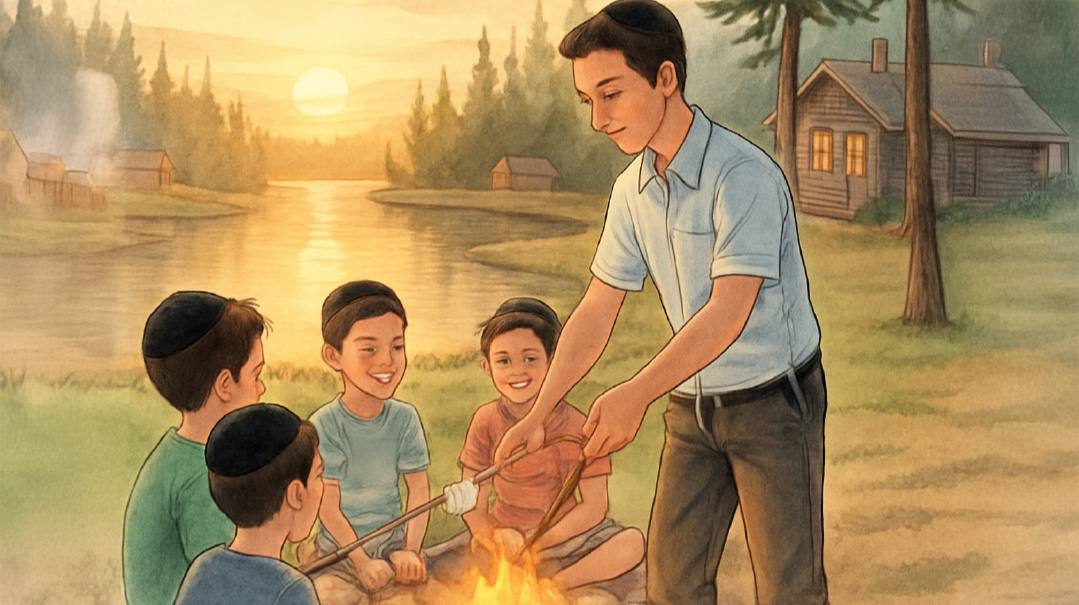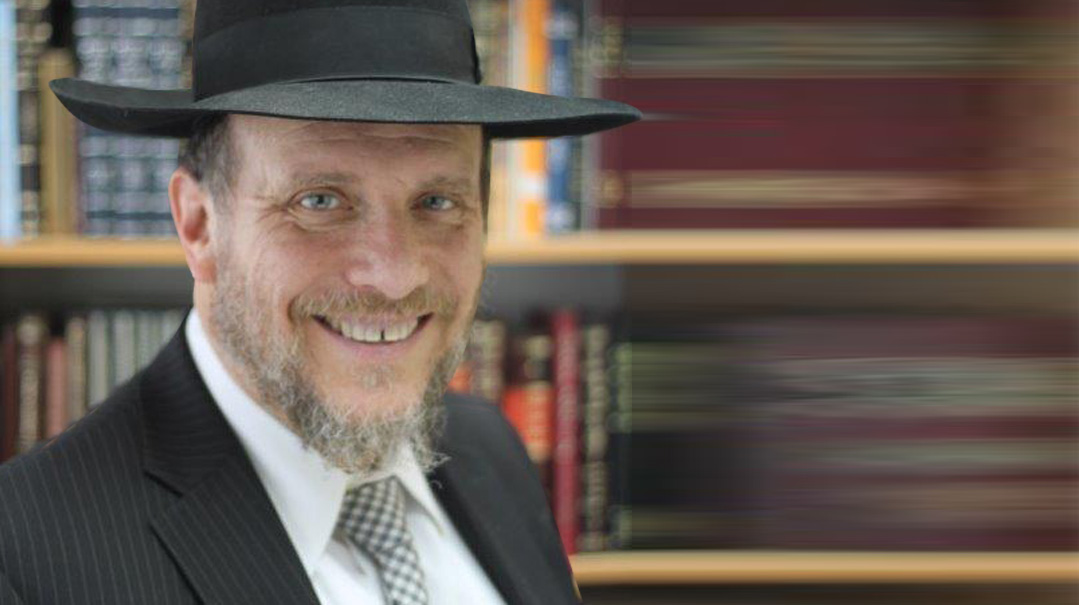The Elusive Answer
| December 13, 2022I’m going to answer the question that has been at the forefront of our communal consciousness for decades
I’M
pleased to announce to the Mishpacha readership that in this article, I’m going to answer the question that has been at the forefront of our communal consciousness for decades now: Why do children stray from the path we have laid out for them with so much love and care?
I decided to join the discourse on this topic after reading the article on emotional neglect by Allison Joseph and the corresponding responses. It became clear to me that we still haven’t figured out the answer to this painful conundrum, though to my mind it’s remarkably simple.
But first, a word about my credentials. I actually have none. I am not a rabbi or a rebbetzin. I am not a psychologist. I have not opened my home and heart to legions of disenchanted youth, who have then poured out their sorry tales after midnight on Friday nights over large bowls of cholent. And while I am a teacher, I’m the sort who imparts the Ramban, not the one who has the key to the hearts of her charges. What I am is a mother of many, that’s all, and an observer of the human scene.
I’m a mother who well understands the urgency of the question and the powerful draw to figure out some answer — the answer — to why children leave. We’re all running scared. The fear of a child who goes off colors our parenting from the youngest years, weakening us. Enforcing a limit? Adhering to a standard? Giving a firm no? Staying different from 90 percent of our peer group? We worry about how all these may affect the psyche of a child. We are terrified of what the child might feel, experience — what their truth, which we are enjoined to accept even as we disbelieve it, might become, what they will one day write in their own article, explaining the thing that made them leave their home of love and light and warmth — and this fear paralyzes us. If we can figure out the answer, we can guarantee ourselves protection from this scourge. So, we search earnestly.
And the answers roll forward at steady intervals. They are legion. The attachment experts tell us about emotional neglect. The learning experts explain how every disaffected youth suffered from hidden learning issues. The trauma specialists insist that inevitably these children experienced trauma of some sort. The educators suggest something is lacking in the home. The parents point fingers at the educators. The optimistic praise both the parents and the educators, yet look at society as the source of the ills: If we didn’t try to put everyone in the same, narrow box, they lament, we wouldn’t have such troubles. And then there are the few who go against the tide by insisting that in fact they know people who had intellectual concerns, valid questions of belief that were a terrible itch they could never scratch — and they insist on this position, even in the face of the current zeitgeist which is adamant that this is simply not an option, only a front for some of the previously mentioned acceptable possibilities.
So, amid this general rush to offer the answer, I’ll toss mine into the ring too: It’s the same answer to the question of the mystery of human behavior that the greatest Rishonim have grappled with. Why do any of us do what we do?
Can I tell you with certainty why I made the choices I did? Why I struggle with the things that I do? No. I can’t. I can sometimes give partial answers; I can identify patterns. But do I know? I only know that I believe in bechirah. I am responsible for my choices.
Which choices and to what extent — that is not entirely clear. The Rambam writes in many places about nature, about nurture, and about the intersection of the two. It emerges that there are things that we can choose and things that we can’t. That we have immutable traits. And that at the same time, our life experiences shape us profoundly. I accept this truth about myself and others, and I know that my job is to do the best I can with who I am and where I’ve been and what I’ve been given.
Why, then, do we look at our older children somehow as different? Aren’t they people too? Do they not also each possess their own unique mix of inborn attributes, family milieu, and personal experiences that shape them, that inform which tests they will be faced with, and that affect the likelihood of passing or failing a particular challenge? We have bechirah — why don’t they?
We look at children differently, I suppose, because of our sacred charge to raise them. To contemplate this is to examine ourselves — to do the painful work of recognizing that our responsibility is enormous, the stakes of our failure very high. Indeed, we would be far worse off if we did not take ourselves, and the scope of our influence on the next generation, as seriously as we do.
And yet, I humbly submit that we go too far when we take total control of the narrative, when we leave nothing to the hidden forces and Divinely-ordained plan that set each of us on a particular path, but do not dictate which particular choices to make at each junction. Yes, we are raising these children, and that is an enormous and dearly held responsibility to which we are willing to devote our passion, our tears, our prayers, our very lives — but we are only raising them so far, far enough to become people in their own right. And people make their own choices.
I think the first time I recognized this was when I was at a parent-teacher conference for my oldest, then nine. Her teacher told me, “I can tell what type of home she is raised in, because it’s obvious from her beautiful middos.” My heart swelled; of course. But then, I thought of another child at home who struggled with middos. And even then, as a barely tried mother, I remember thinking, If I accept the credit for her beautiful middos, then does that mean I also have to accept the blame for the struggles of her sibling?
My heart told me yes. I couldn’t take one without the other. At that moment, I chose to take neither. Yes, I hope I modeled good middos — but I didn’t make one child any more than I made the other.
I believe the articles by experts are important. These are people who have spent years steeped in a particular question, and their insights are invaluable. They have spent years speaking to people with trauma; they know trauma and how it affects the developing psyche. We would be arrogant fools indeed to discard their cautions.
However, I’m wary when they use terms like “every” and “always.” Because there are so many ways to be an individual. Perhaps they are so certain of the “always” nature of their response because the populations they work with are so self-selecting — one refers another, and they become known as the address for that particular issue —and soon that’s all they see. Aside from that quibble, I am grateful to what they add to this discourse.
I come only to suggest that we change our lens. We aren’t going to find the one answer because there isn’t one, any more than there’s one answer to the question of why anyone struggles. All we can do is parent to the best of our ability and choose to be the best that we can in our own lives. And daven, of course. As for the why? Hanistaros l’Hashem Elokeinu.
(Originally featured in Mishpacha, Issue 940)
Oops! We could not locate your form.






